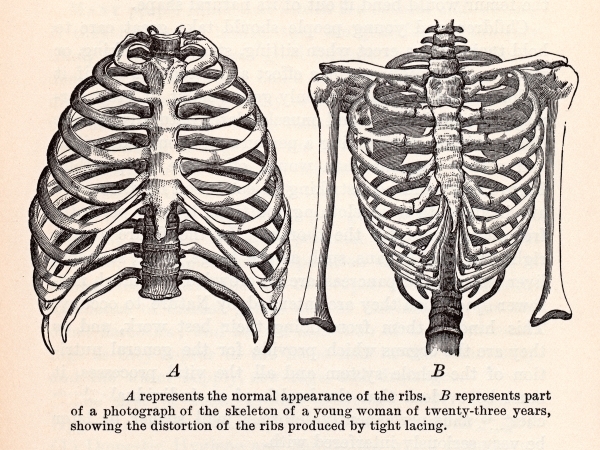Facebook has apologised for reportedly allowing advertisers to target emotionally vulnerable people as young as 14,Watch Vidocq Online as a 23-page leaked document obtained by The Australianrevealed.
According to the news outlet, the document prepared by two top Australian Facebook executives uses algorithms to collect data (via posts, pictures, and reactions) on the emotional state of 6.4 million "high schoolers," "tertiary students," and "young Australians and New Zealanders … in the workforce," indicating "moments when young people need a confidence boost."
In other words, data says they feel "worthless" or "insecure" and are therefore well-positioned to receive an advertiser’s message.
SEE ALSO: Facebook blasted again for not quickly removing child pornA spokesperson for the social media giants said an investigation has been opened, telling The Australianon the weekend, "we have opened an investigation to understand the process failure and improve our oversight. We will undertake disciplinary and other processes as appropriate."
Additionally, a Facebook spokesperson told Mashable that the document's insights were never used to target ads.
"Facebook does not offer tools to target people based on their emotional state. The analysis done by an Australian researcher was intended to help marketers understand how people express themselves on Facebook," said the spokesperson. "Facebook has an established process to review the research we perform. This research did not follow that process, and we are reviewing the details to correct the oversight."
Still, there's no denying that data mining algorithms such as this one not only exist, but in keeping with the basic principles of production for profit, they're being used all the time.
What makes things worse for Facebook is that the real-time monitoring of young people's emotions in the document marked "Confidential: Internal Only"and dated 2017 seems to be in breach of the Australian Code for Advertising & Marketing Communications to Children.
Mining Facebook for young people and children feeling "stressed," "overwhelmed," and "useless" seems kinda contrary to ethical standards.
As The Australianpoints out, the Code defines a child as a person 14-years-old or younger, and states that children must "obtain a parent or guardian's express consent prior to engaging in any activity that will result in the collection or disclosure … of personal information." That is, "information that identifies the child or could identify the child."
Mining Facebook for young people and children's negative emotions including "stressed," "defeated," "overwhelmed," and "useless" seems contrary to the ethical standards the Code's authors, the Australian Association of National Advertisers (AANA), champions.
The report is the latest example of Facebook's intelligence being used in the service of what some would consider unethical advertising. A ProPublicainvestigation in 2016 alleged that the platform enabled advertisers to discriminate by race -- what Facebook calls its "ethnic affinity" tag.
In February, the company announced that it would begin using its AI to identify ads for housing, credit, and jobs, and remove any ads that targeted race.
Perhaps news that Facebook is allowing ads to target young Australians based on their low emotional state will result in another "bare minimum" policy change. Either that, or it may create even more AI tools to try and address the problem.
The AANA have been contacted for comment.
Topics Facebook Advertising
(Editor: {typename type="name"/})
 The fat bears are already extremely fat
The fat bears are already extremely fat
 Bones by Nathan Deuel
Bones by Nathan Deuel
 Congresswoman drops social media report on Republicans who tried to overturn the election for Trump
Congresswoman drops social media report on Republicans who tried to overturn the election for Trump
 What is pelvic pain and what can you do to treat it?
What is pelvic pain and what can you do to treat it?
 Best Apple deal: Save $19 on AirTag 4
Best Apple deal: Save $19 on AirTag 4
Amazon Spring Sale 2025: Best Apple AirPods 4 deal
 SAVE $29:As of March 25, Apple AirPods 4 are on sale for $99.99 at Amazon as part of its Big Spring
...[Details]
SAVE $29:As of March 25, Apple AirPods 4 are on sale for $99.99 at Amazon as part of its Big Spring
...[Details]
Ghostwriting Tom Clancy by Sadie Stein
 Ghostwriting Tom ClancyBy Sadie SteinOctober 3, 2013Quote Unquote“I had to be more disciplined than
...[Details]
Ghostwriting Tom ClancyBy Sadie SteinOctober 3, 2013Quote Unquote“I had to be more disciplined than
...[Details]
Why 'House of the Dragon' is still filming during the SAG
 The SAG-AFTRA strike has begun, but it's business as usual in Westeros.As reported by Variety, HBO's
...[Details]
The SAG-AFTRA strike has begun, but it's business as usual in Westeros.As reported by Variety, HBO's
...[Details]
How to support those impacted by the writers' and SAG strikes
 Are you an avid television viewer? The champion of entertainment trivia on your pub quiz team? Love
...[Details]
Are you an avid television viewer? The champion of entertainment trivia on your pub quiz team? Love
...[Details]
Tennessee vs. Kentucky 2025 livestream: How to watch March Madness for free
 Where to stream 2025 March Madness online for free 5-Day Free Trial
...[Details]
Where to stream 2025 March Madness online for free 5-Day Free Trial
...[Details]
We dreamed of the Before Times for a year. But how will COVID's scars haunt the After Times?
 This time last year my hands had worn raw. Fingers crusted and dry, seams cracked from frequent spri
...[Details]
This time last year my hands had worn raw. Fingers crusted and dry, seams cracked from frequent spri
...[Details]
'Quordle' today: See each 'Quordle' answer and hints for July 15
 If Quordleis a little too challenging today, you've come to the right place for hints. There aren't
...[Details]
If Quordleis a little too challenging today, you've come to the right place for hints. There aren't
...[Details]
Fictional Food, and Other News by Sadie Stein
 Fictional Food, and Other NewsBy Sadie SteinOctober 18, 2013On the ShelfGo Comics has put the comple
...[Details]
Fictional Food, and Other NewsBy Sadie SteinOctober 18, 2013On the ShelfGo Comics has put the comple
...[Details]
NYT Connections Sports Edition hints and answers for May 18: Tips to solve Connections #237
 Connections: Sports Editionis a new version of the popular New York Times word game that seeks to te
...[Details]
Connections: Sports Editionis a new version of the popular New York Times word game that seeks to te
...[Details]
 On TwaddleBy Sadie SteinOctober 14, 2013Quote Unquote“I imagine I was always writing. Twaddle it was
...[Details]
On TwaddleBy Sadie SteinOctober 14, 2013Quote Unquote“I imagine I was always writing. Twaddle it was
...[Details]
接受PR>=1、BR>=1,流量相当,内容相关类链接。